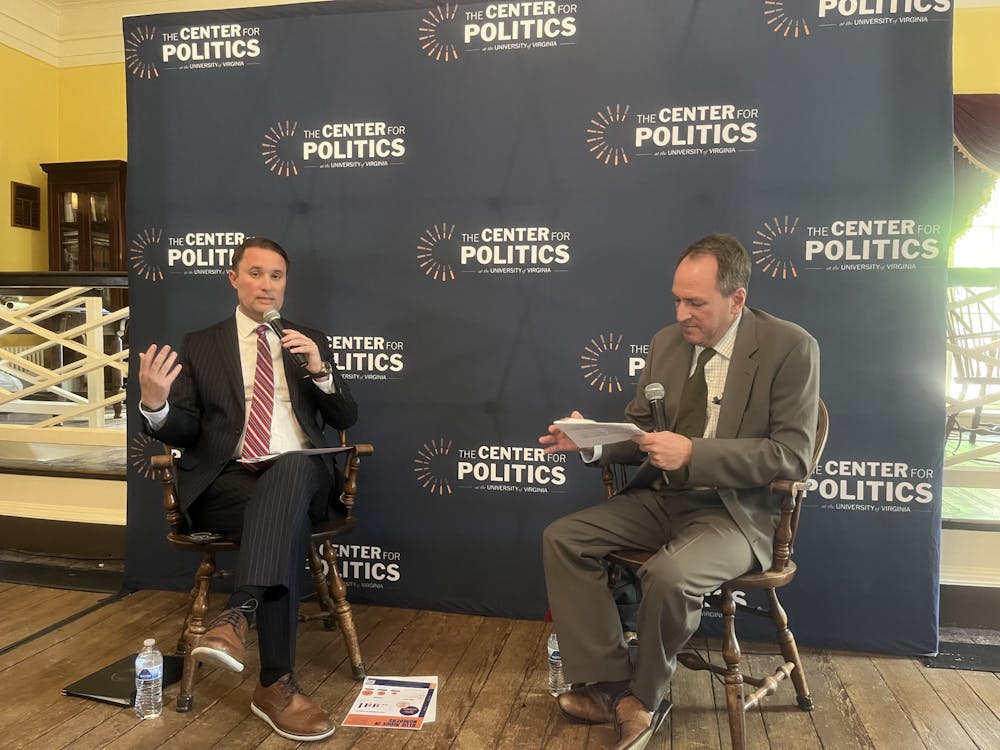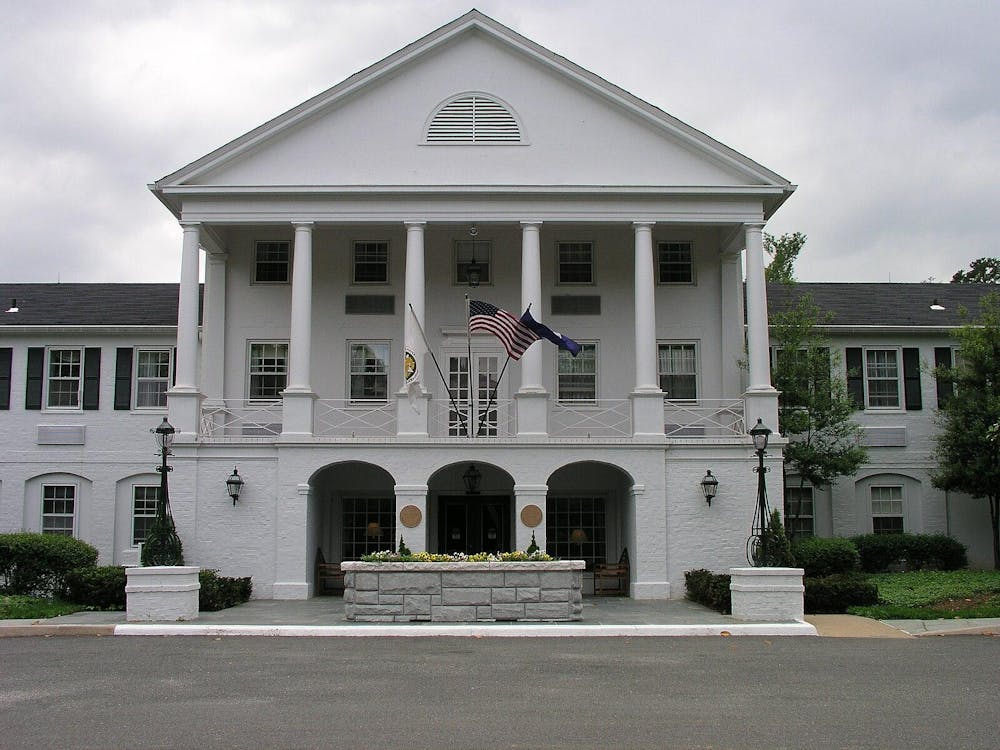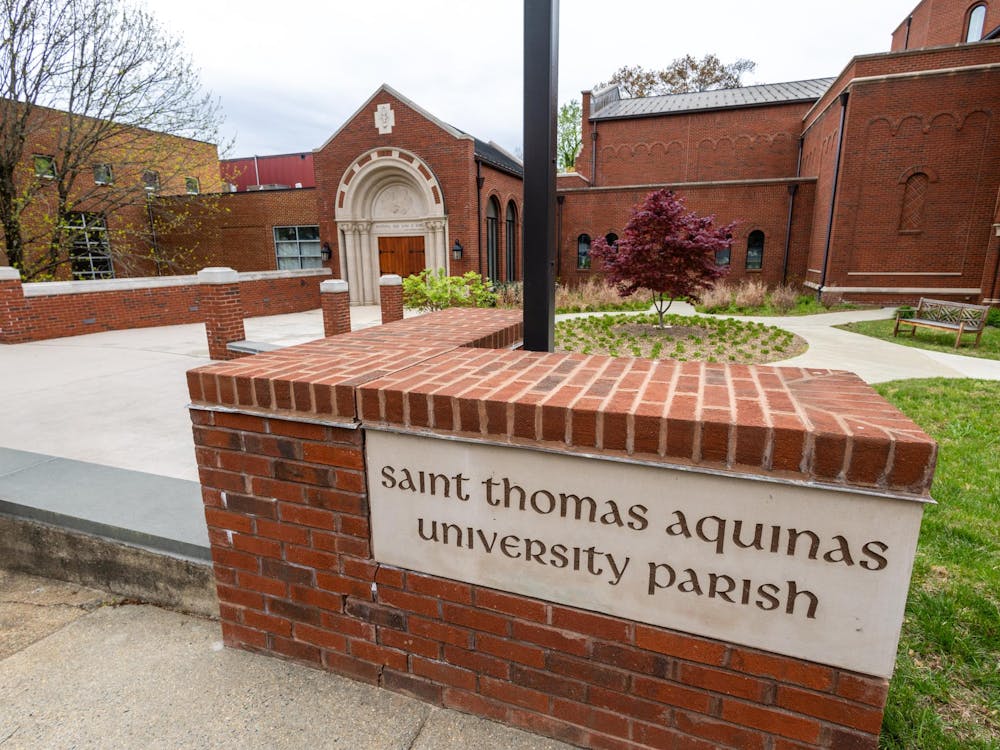Politician and Virginia Attorney General Jason Miyares spoke at an event titled “An Afternoon with Attorney General Jason Miyares” hosted by the Blue Ridge Center, an organization devoted to promoting free speech and debate on Grounds, and the Jefferson Council — a conservative alumni group dedicated to preserving the legacy of Thomas Jefferson — in collaboration with the Center for Politics on Grounds Wednesday.
Miyares answered questions from Politics Prof. Gerard Alexander and attendees in a fireside chat about free speech regarding protests across college campuses. He also answered questions about the ongoing Israel-Hamas war and the purpose of the state’s criminal justice system and possible reforms.
Prior to becoming Attorney General in January 2022, Miyares worked as an Assistant Commonwealth Attorney in Virginia Beach and served in the Virginia House of Delegates for three consecutive terms. He is the first Hispanic American to be elected to a statewide office in Virginia, and the first child of an immigrant to be Attorney General.
The son of a Cuban refugee, Miyares discussed his story of how he became Attorney General and praised the United States as a nation where hard work brings more possibilities for people. He said that U.S. citizens should be grateful to live in the country, as immigrants face many struggles in their process to get to the United States.
“My uncle got arrested [in Cuba]. When he went to a mock execution, you know what got the jailer some rage? He told him he had certain unalienable rights that cannot be taken. When you're in America, you don't realize how great America is,” Miyares said.
During the questioning period, an attendee asked Miyares about his stance on the Boycott, Divestment and Sanctions movement against Israel and Israel-supporting businesses nationwide. Miyares said that while citizens have a First Amendment right to protest and argue, the protests against Israel’s actions often do not address other issues in the region, like Hamas’ violence against Israeli women.
“I don't like the fact that they're shouting the same slogans about Hamas,” Miyares said. “They never once talked about the mass rape of Israeli women and they never talked about what we see in the hospitals. I think that's a real problem. I think that BDS is not a very effective system. I think it isolates Israel in a way ... and it's not fair.”
After Miyares’ statement, Civil Rights Lawyer Gregory Brown stood up in the audience and acknowledged the support that Miyares has expressed for the Jewish community, but asked him to direct more attention to antisemitism on college campuses. To showcase his concern to the public, Brown introduced first-year College student Matan Goldstein, who has said he has been the victim of several antisemitic attacks on Grounds, including receiving death threats.
“I'm sitting here with Matan Goldstein, who is one of the victims of antisemitism on this campus”, Brown said to Miyares. “We appreciate everything you're doing for the Jewish community and we're asking you to take a look at this. This campus is not safe for people … We're asking you to direct your attention to see what it's like to be a Jewish student who has to go into hiding on this campus, and we're begging you to direct your attention to this.”
Another major topic of the conversation was criminal justice reform and abuse of police power in Virginia. Miyares said the justice and policing system is not perfect, but focusing on the faults of individual officers is not the solution to abuse of power problems due to the difficulty of their job.
“The only individuals in our society that have a monopoly on the use of violence, with very few exceptions, are our police, so we should hold them to an incredibly high standard, but the reality is the vast majority of officers do an incredibly difficult job … it is the hardest job in America,” Miyares said.
Instead of looking at problems with the police, Miyares said pursuing repeat criminal offenders is a more crucial step in reducing crime, saying that studies show a small percentage of criminals commit a majority of crimes.
"It is true that there are studies that have shown that three to five percent of criminals commit over 50% of the crime,” said Miyares. “So if you want to reduce crime, you have to go after that small subset of — we could call them repeat offenders or career criminals."
Miyares also serves as a founder of the Operation Ceasefire initiative, a strategic partnership with local elected officials and law enforcement to reduce crime by removing repeat offenders from the streets. According to the Ceasefire Virginia website, the initiative advocates for a three step approach of prevention, intervention and prosecution programs to reduce crime.
Miyares said that focusing on all three aspects through this initiative is what helped lower crime rates in the 30 Virginia cities in which it was introduced.
The last Blue Ridge Center event of the semester will be held April 29 at 6:30 p.m. in Monroe Hall with environmental activist Benji Backer.







